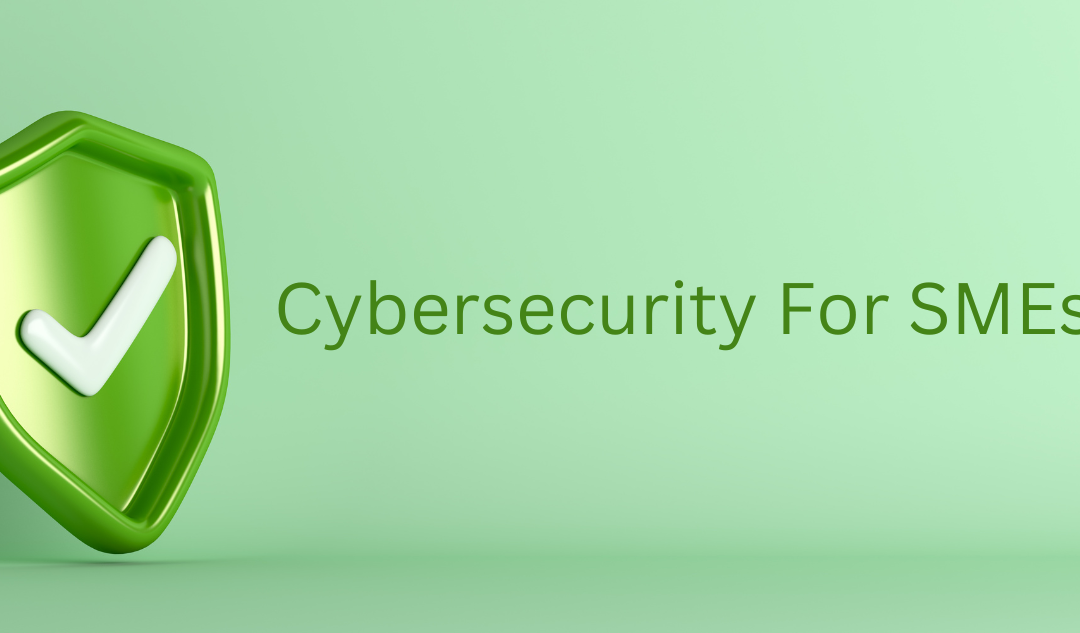Cybersecurity refers to the practices, technologies, and measures taken to protect computer systems, networks, and data from unauthorised access, damage, or theft. For SMEs, cybersecurity involves safeguarding their digital assets, such as customer data, financial information, intellectual property, etc, against cyber threats.
According to a report by Detica, cyberattacks cost the UK business community £21 billion annually. This is unsurprising considering that cybercriminals are deploying advanced cyberattack techniques regardless of business size.
Small and medium-sized enterprises (SMEs) play a crucial role in today’s economy, driving innovation and creating employment opportunities. However, their limited resources and budget constraints often make them attractive targets for cybercriminals. Statistics reveal that small businesses are 60% more likely to be targeted for cyberattacks or breaches, compared to larger business, and in the UK, a small business is successfully hacked every 19 seconds.
While cybercrimes on small and medium businesses rarely make the news, they occur frequently and are very costly. The average financial cost for small and medium businesses that lost assets and data from breaches being £12,920, and the most severe breaches costing as much as £310,800.
Common Cyber Threats
SMEs face a range of cyber threats that can disrupt their operations and compromise their sensitive information. Some of the most common cyber threats include:
- Phishing: Phishing is a type of attack where cybercriminals masquerade as legitimate entities to deceive employees into revealing sensitive information like passwords or financial data.
- Malware: Malicious software, such as viruses, worms, or ransomware, can infect SMEs’ systems and cause significant damage, including data loss, system crashes, and financial losses.
- Social Engineering: Cybercriminals often use psychological manipulation techniques to trick employees into divulging sensitive information or performing actions that can compromise the organisation’s security.
- Insider Threats: Employees or former employees with malicious intent can intentionally or accidentally compromise the organisation’s security by misusing their privileges or sharing confidential information.
Building a Strong Cybersecurity Strategy
To protect themselves from cyber threats, SMEs should adopt a comprehensive cybersecurity strategy. Here are some key steps to consider:
- Assessing Risks and Vulnerabilities: Start by identifying and evaluating the specific risks and vulnerabilities that your business may face. Conduct a thorough assessment of your IT infrastructure, including networks, devices, and software applications, to identify potential weaknesses.
- Implementing Robust Password Policies: Strong passwords are the first line of defence against unauthorised access. Encourage employees to create unique, complex passwords and change them regularly. Consider implementing password management tools or multi-factor authentication (MFA) for an added layer of security.
- Employee Education: Human error is often a significant factor in cyber incidents, so it’s crucial to educate your employees about cybersecurity best practices. Conduct regular training sessions to raise awareness about phishing, social engineering, and other common attack vectors. Teach them how to recognise and report suspicious emails or activities.
- Regularly Updating Software and Systems: Outdated software and systems can have vulnerabilities that cybercriminals can exploit. Ensure that all software, including operating systems, antivirus programs, and applications, are kept up to date with the latest security patches and updates. Set up automatic updates whenever possible.
- Backing Up Data Regularly: Regularly backing up your data is essential in case of a security breach or system failure. Implement a robust backup strategy that includes off-site or cloud backups. Test the restoration process periodically to ensure data integrity.
- Using Multi-Factor Authentication (MFA): Implement MFA wherever possible, especially for critical systems and applications. MFA adds an extra layer of protection by requiring users to provide additional verification, such as a unique code, in addition to their username and password.
- Monitoring Network Traffic and User Activities: Implement network monitoring tools to track network traffic and detect any anomalies or suspicious activities. Monitor user activities, such as access logs and login attempts, to identify potential security breaches or unauthorised access.
- Restricting Access to Sensitive Information: Implement the principle of least privilege, which means granting employees access only to the data and systems necessary for their job roles. Regularly review and revoke access privileges for employees who no longer require them.
- Engaging with Cybersecurity Professionals: Consider partnering with cybersecurity professionals or managed security service providers (MSSPs) who specialize in protecting SMEs. They can provide expertise, conduct security assessments, and offer proactive monitoring and incident response services.
Responding to Cybersecurity Incidents
Despite preventive measures, cybersecurity incidents can still occur. It’s crucial to have an incident response plan in place to minimize the impact of such incidents. The plan should include steps to contain the incident, investigate the root cause, notify relevant stakeholders, and restore normal operations as quickly as possible.
Cyber Insurance for SMEs
Consider obtaining cyber insurance to protect your business against financial losses resulting from cyber incidents. Cyber insurance can help cover the costs associated with data breaches, legal liabilities, business interruption, and forensic investigations.
Why Choose Modalit?
Small and medium businesses face more disadvantages when trying to protect themselves from cyberattacks when compared to their larger counterparts. This is largely due to factors such as lack of skills, resources, and staff.
As a small and medium business, cybersecurity can seem too daunting due to its potential risks. Modalit exists to take away this burden by providing managed IT security services as part of our IT solutions. We offer cybersecurity services that include attachment sandboxing, application whitelisting, multi factor authentication, and regular vulnerability testing.
Contact us today for to improve cyber resilience for your business. We will work with you, advise you on a tailored cybersecurity plan and provide you with appropriate services that addresses your business’ specific security risks.

